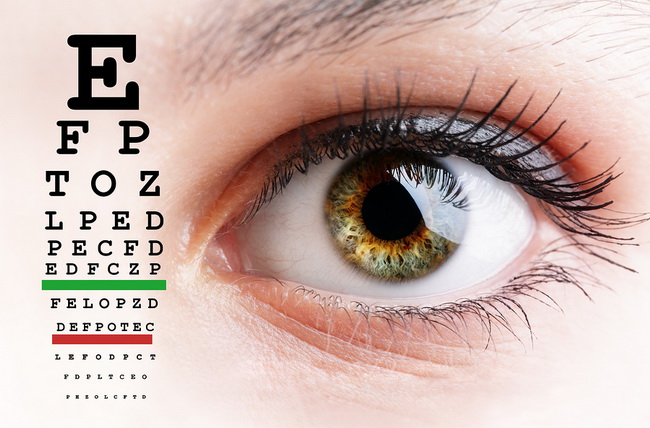- Make It Yourself Lavender Heart-Shaped Bath Bombs!
- 20 Things You Never Knew About “Down There”
- 12 Best Foods For Those Suffering From Arthritis Pain
- 12 Personal Hygiene Mistakes Almost Everyone Makes (Mom Never Told You About #4!)
- 15 Medicinal Plants And Herbs From The Cherokee People
- 12 Mind-Blowing Benefits Of Drinking Coconut Water During Pregnancy
- 12 Outstanding Winter Foods That Won’t Fatten You Up Like A Christmas Turkey
The Best 12 Herbs to Keep Eyes Healthy and Disease Free

Photo credit: bigstock.com
Our eyesight is one of our most treasured senses. From the moment we wake up and see the alarm clock we observe nature, appreciate art, watch various monitors, and connect with other people. Until we close them at night, we are constantly using our eyes to adjust, observe, and appreciate the world around us. We spend money on making them look pretty or to draw attention to them through makeup, colored contact lenses, and even anti-wrinkle creams!
We use our eyes so much and are willing to spend our hard earned money to improve their looks, so doesn’t it make sense that we should protect our eyes as well? We can do that by wearing sunglasses and hats when we are outdoors in the sun, managing out stress, avoiding smoke, and eating a healthy, organic diet.
You might also want to consider incorporating some medicinal herbs into your diet as well, especially if you have a family history of eye problems such as macular degeneration or cataracts. Whether you are looking to support healthy eyesight or help to improve it, we have 12 of the best herbs on the planet that can help you to do exactly that.
1. Cannabis
Well, you weren’t expecting that one, now were you? The truth is, marijuana contains cannabinoids, which, among its many benefits, reduces pressure in the eyes. This is especially important for those with glaucoma or who have a family history of glaucoma. In studies done involving humans, subjects who smoked marijuana had significant pressure reduction in the eyes which lasted as long as 4 hours. Other studies have tried other methods besides smoking including an oral extract, inhaled via other methods, or intravenously injected.
Although these methods were also successful, there were a few side effects, including reduced blood pressure, dry eyes, pink eyes, and, well, that altered state of mind. (Well, not everyone would consider that a negative side effect.) However, the identification of cannabinoid receptors for the eyes has piqued interest in the development of eye drops.
2. Eyebright
The name alone tells you a great deal about this herb. It actually gets its name from the flowers that look like eyes. This herb is a powerful medicine when it comes to preserving eyesight. Studies have shown what has been believed for years: that this herb soothes itchy or red eyes, such as those suffering from conjunctivitis. Another study used 12 general practitioners and ophthalmologists in Europe that administered a single dose of eyebright in an eye drop form to those suffering from conjunctivitis. Complete recovery occurred in 81.5 percent of these subjects and there was significant improvement in another 17 percent.
3. Omega-3s
OK, so technically this is not an herb, but this substance definitely deserves mention here. These essential fatty acids are anti-inflammatory and help to maintain the fluidity of cell membranes, as well as protect the retina from oxidative damage. Consuming higher levels of fish and fish oil (both EPA and DHA) can reduce the risk of macular degeneration. Studies have shown that consuming plenty of omega-3 fatty acids can help reduce dry eye syndrome.
Continue to Page 2
































